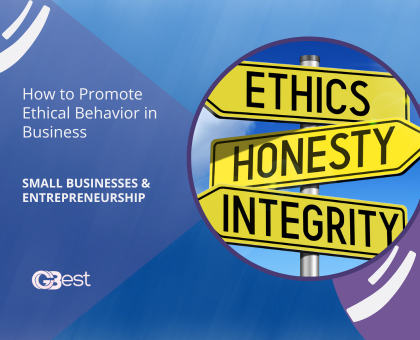The term “ethics” refers to the moral principles and ideals that guide decision-making procedures, actions, and attitudes. They provide a framework to take into account while making ethical decisions in an atmosphere of potential risks.
Have you ever felt as if the actions you were taking based on personal feelings about what is right, only landed you on the losing side of the chessboard? As much as individual perspectives might be validated in the workplace, they may not always sit well with the people around you. Being ethical does not necessarily imply acting on one’s personal judgement of a situation. Many times, our assessment of a situation can become tainted by personal biases and previous experiences.
Feelings can cause someone to deviate from what is considered to be ethical in the workplace. To promote ethical behavior in business, there must be a purposeful attempt to entrench ethical considerations in the organizational culture. In order to incorporate the idea of ethical considerations, both employers and employees, must realise these many ways of promoting ethical behaviour:
- Give ethical instruction
Ethical training teaches employees what constitutes ethical conduct and guides them in making ethical judgments. Providing them with this understanding minimizes the risk of unethical behaviour in the workplace, such as discrimination, harassment, or conflicts of interest.
- Start with integrating ethical consideration as the foundation
Although most individuals want to “do the right thing,” the idea of “right” is often impacted by who they associate with. According to research, a good ethics and compliance program contributes to the development of an integrity culture in which everyone “walks the talk.” Employees at all levels are dedicated to doing what is right and respecting principles and standards in an organization with a strong ethical culture.
- Values and Purpose Alignment
Many organizations have clear goals and guidelines that place importance on decent behaviour and morality. In general, these businesses have set standards that mention words like “honesty,” “integrity,” and “accountability.” Although it’s crucial to have these guidelines in black and white, they are useless if they are not followed. Therefore, you must take steps to uphold them in practice as opposed to simply observing them on paper.
- Establish a procedure for reporting unethical behaviour.
The values mentioned above must be supported by a reporting system, which makes sure that they are put into effect in the workplace and are more than just empty platitudes. Therefore, if an employee thinks or knows that someone in their organization is acting unethically, they must be able to report it. A reporting system communicates to employees that the firm values ethical behaviour. It promotes a culture in which ethical behaviour is expected and rewarded, while unethical behaviour is discouraged.
In conclusion, fostering ethical behavior in business requires a purposeful and comprehensive approach that permeates the organizational culture. In essence, promoting ethical behavior in business requires a holistic and ongoing effort that involves education, cultural integration, and the establishment of mechanisms for accountability. By embracing these strategies, organizations can create an environment where ethical conduct is not only encouraged but becomes an inherent and celebrated aspect of the company’s identity.
References
https://www.irmi.com/articles/expert-commentary/why-link-risk-management-and-ethics
https://hbr.org/2016/11/simple-ethics-rules-for-better-risk-management
https://www.clearrisk.com/risk-management-blog/how-to-manage-ethical-risks-0








